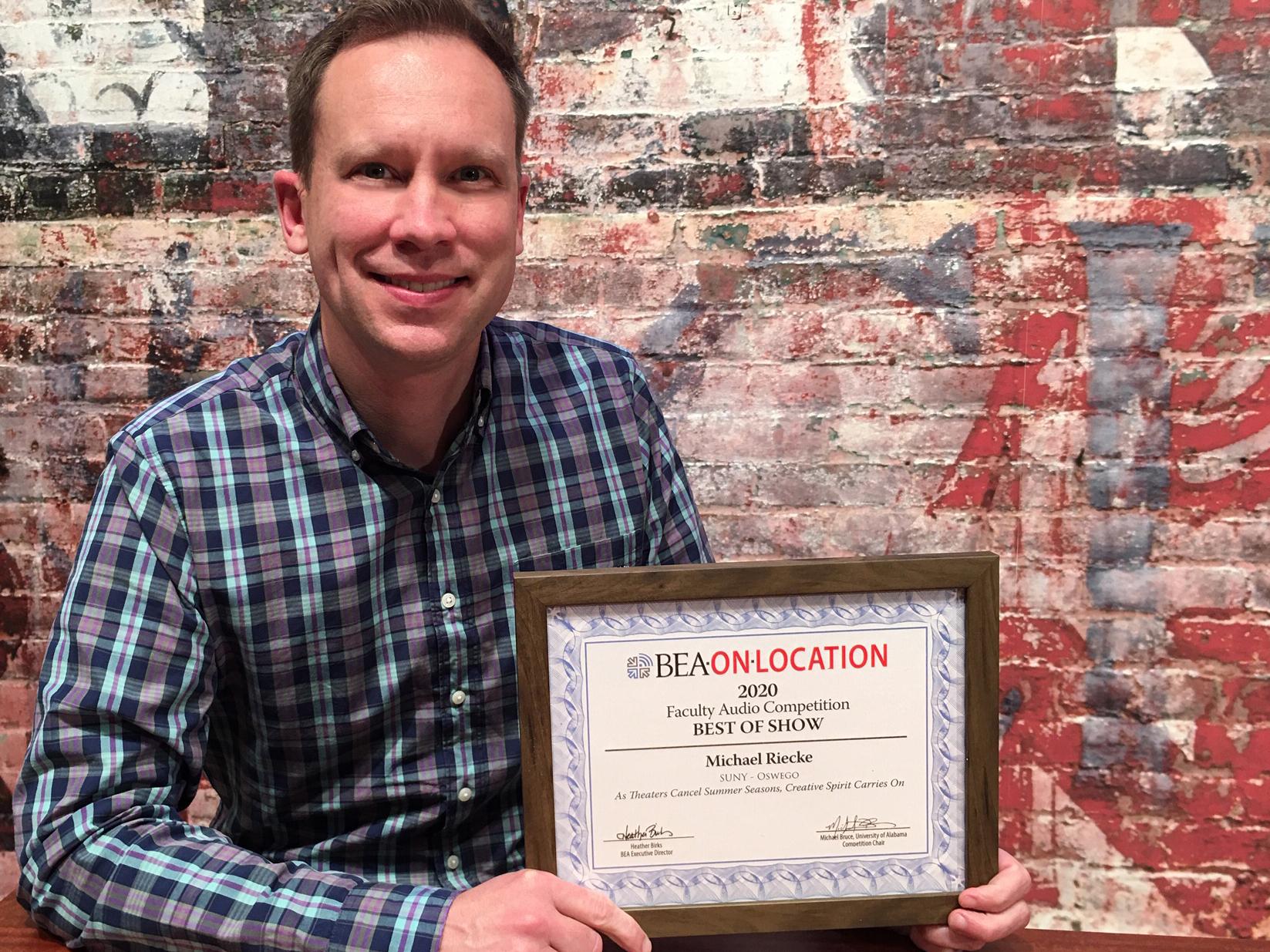Award-winning storyteller -- SUNY Oswego communication studies faculty member Michael Riecke won Best of Show for faculty audio at the Broadcast Education Association's On-Location Creative Competition and Showcase. His winning piece, which explored how the pandemic has impacted regional theatre companies, aired on WRVO Public Media.
SUNY Oswego broadcasting and mass communication assistant professor Michael Riecke won Best of Show for faculty audio at the Broadcast Education Association's On-Location Creative Competition and Showcase Oct. 24.
Riecke's winning entry, "As theaters cancel summer seasons, creative spirit carries on," aired on WRVO Public Media in April, profiling the financial challenges and the artistic opportunities facing theater professionals during the COVID-19 pandemic.
“I was genuinely surprised and honored when my name was announced,” Riecke said. “More than anything, it felt great to see SUNY Oswego across the screen, especially with competition from much larger institutions in the mix.”
An experienced storyteller, award-winning broadcast journalist and theater enthusiast, Riecke realized in spring that restrictions related to coronavirus would be “bad news for regional theater companies, especially the summer stock theaters,” he said.
“I wanted to explore the financial challenges the theaters and their employees were destined to face, but as I interviewed my sources, I quickly realized they're artists,” Riecke recalled. “They weren't fretting about the loss of money. They were more concerned about the pause in their work -- performing and creating. Ultimately, my story merged both elements and became a piece about how a financial hit from the shutdown wasn't diluting the creative energy of theater professionals.”
The Broadcast Education Association holds two faculty creative competitions annually, with this competition part of the BEA On-Location conference, held virtually this year. The competition features categories including audio, video, scriptwriting and commentary, with judges placing top selections in the showcase, where Riecke’s submission was one of two “Best of Show” winners.
Riecke said he was grateful that Jason Smith, WRVO Public Media’s news director, and Bill Drake, WRVO general manager, continue to appreciate and support long-form journalism via WRVO-FM and their website, WRVO.org.
Setting an example
As a faculty member and mentor, Riecke appreciated the opportunity to show that journalists continue to pursue “a tough, yet critical gig,” he said.
“I hope this piece and others I've produced serve as an example to my students of what can be accomplished creatively even with the limitations we face during the pandemic. I also hope students see me as someone who is in the trenches with them,” Riecke said. “I can empathize with many of the challenges they face as student journalists and help them navigate those obstacles with relevant, timely strategies.”
Just like his students and journalists everywhere, it showed ways to get creative with interviews to still tell stories.
“In most cases, face-to-face meetings weren't an option because of the pandemic,” Riecke said. “I spent far more time working with interview subjects to ensure I was getting the highest quality audio possible.”
For Riecke and his students, this sometimes involves working with sources on configuring technical settings on their own computers, and working with them to record and incorporate natural sound.
“We all know by now, this year is all about adaptation,” Riecke said. “The best part is, I was able to share my experience, what worked and what didn't, with students in my broadcast reporting class this fall.”




